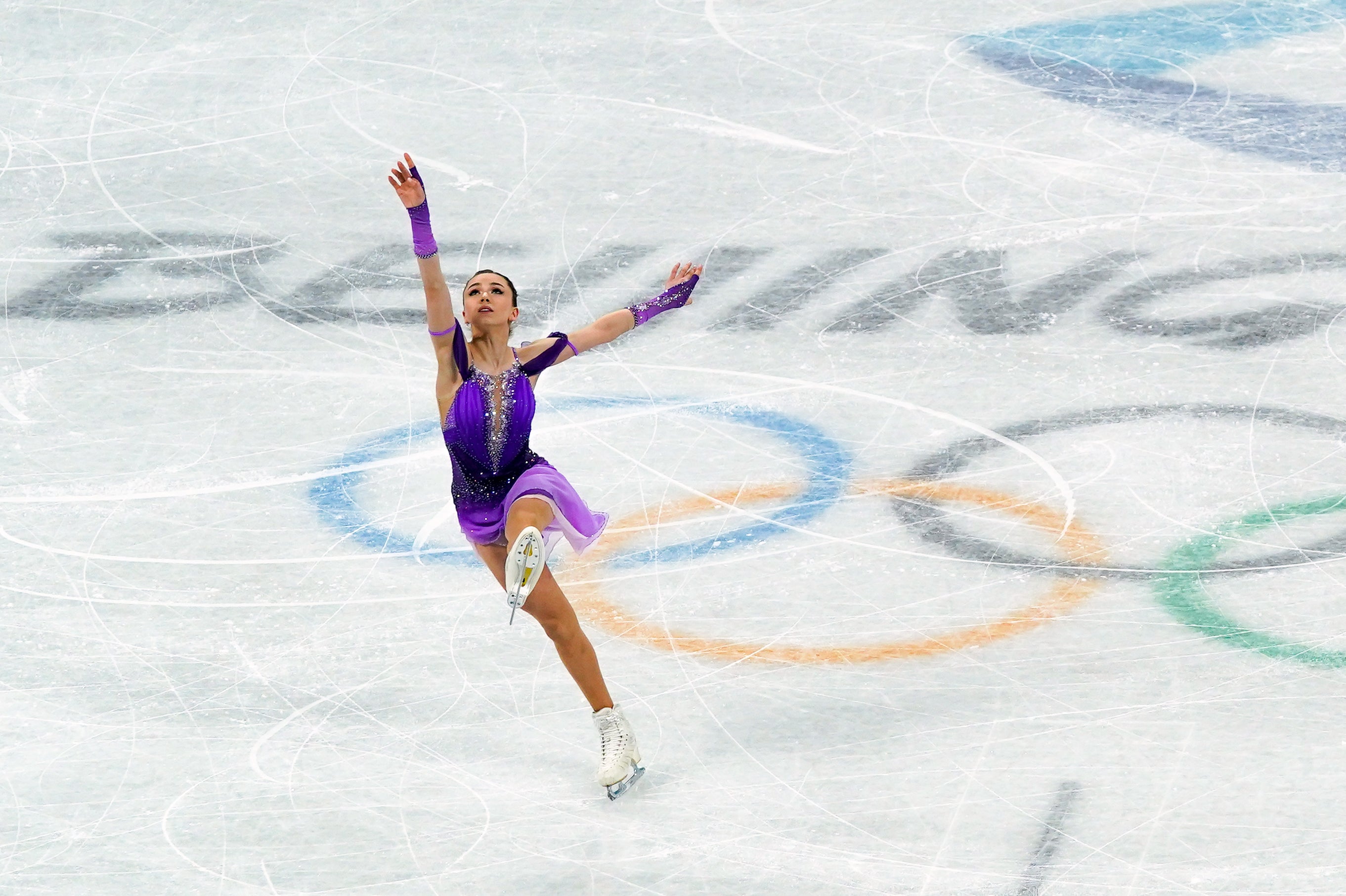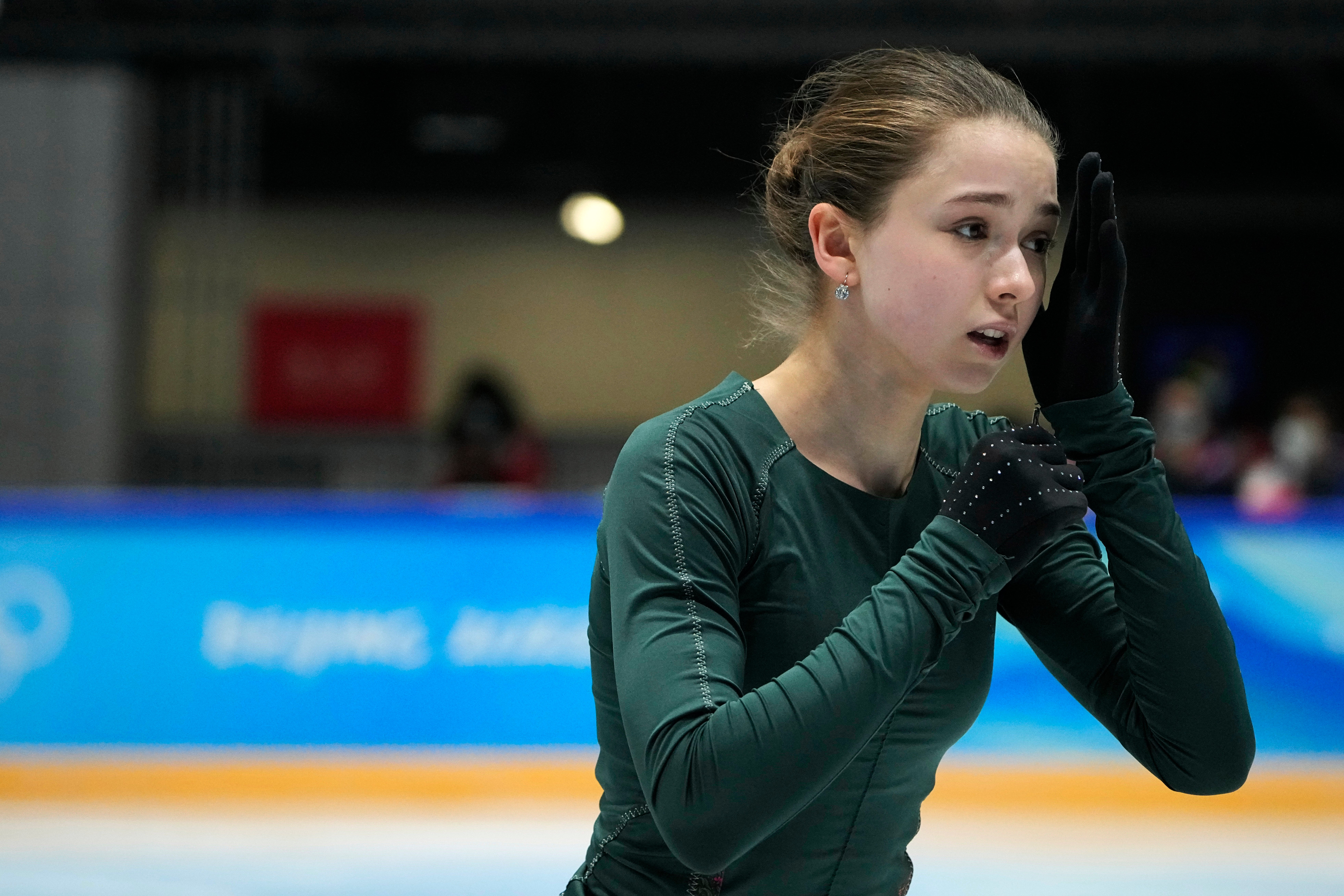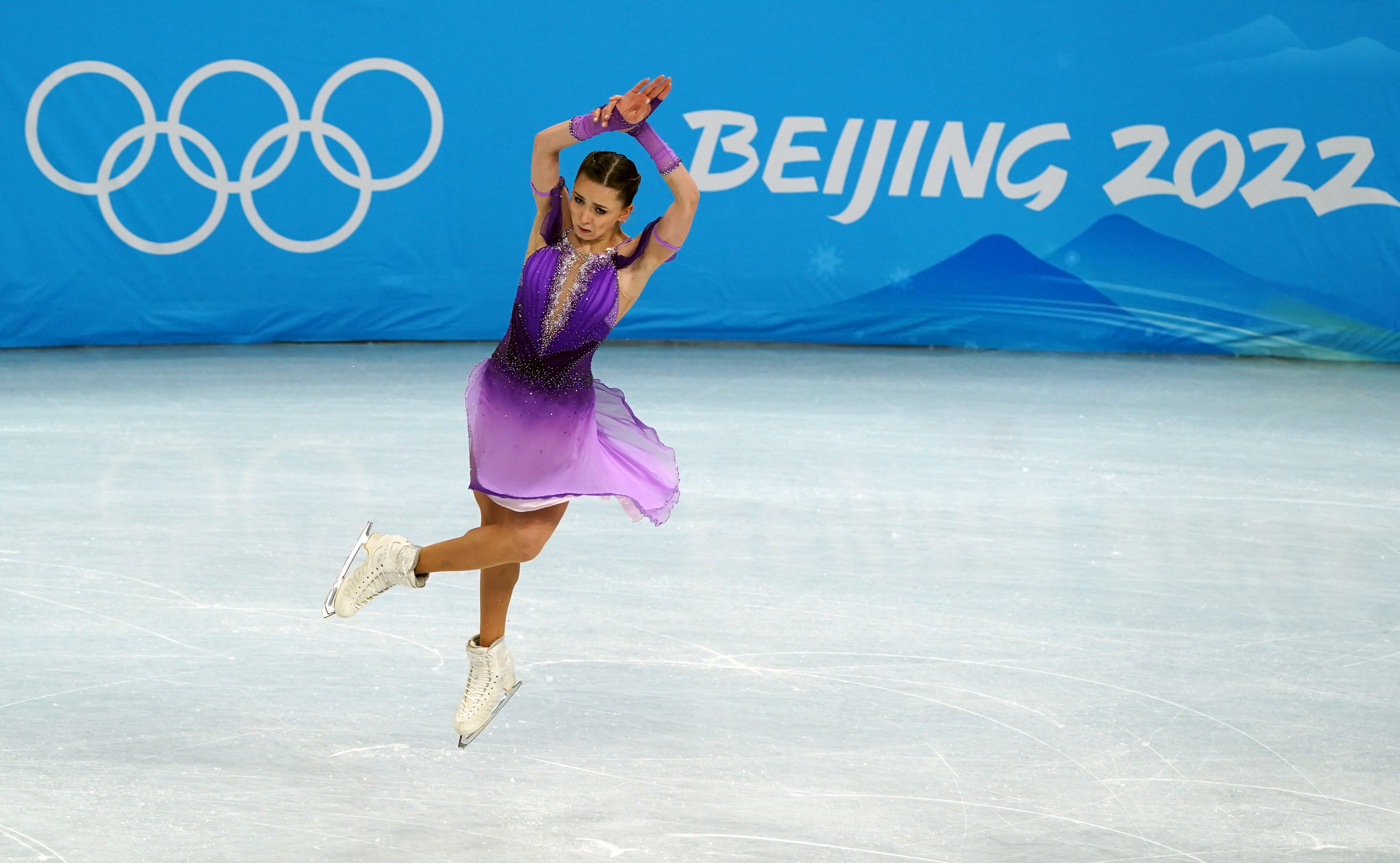Kamila Valieva’s failed drugs test exposes Russia and IOC’s broken relationship
The story becomes a welfare story as well as a doping one due to the Russian being just 15 years old
Kamila Valieva’s Olympic dreams are hanging by a knife-edge as the bewildered teenager was pitched into a battle between the International Olympic Committee and Russia.
Valieva, just 15, was meant to be the face of these Games and was already being hailed as the greatest women’s skater of all time, guiding Russia to team gold and becoming the first woman to land a quadruple jump at the Olympics.
But as she practiced twice today at the Capitol Indoor Arena, her future was being decided in an unedifying legal wrangle that exposed the fissures and fault lines in the relationship between Russia and the IOC.
News that Valieva had tested positive for banned substance trimetazidine, which is used to treat angina, sent shockwaves through the Games though the case was complicated by a lack of details and her minor status.
As she walked past reporters after the second of two practice sessions – in which she fell three times while rehearsing her Bolero free skate – Valieva wore a hoodie and shook her head when asked if she’d ever taken drugs.
It was a sad scene that underlined the broader story here, it’s about the welfare of a child, rather than an aspiring Olympic champion and the Russian team – proven to chase medals at all costs - must take more responsibility for her wellbeing.

Today the ITA - the independent body which looks after doping cases on behalf of the IOC – realised a detailed 700-word statement clarifying the timelines – though it poses more questions than answers and raises serious doubts, again, about the probity of Russian doping controls.
Valieva recorded an adverse sample after the Russian national championships in St Petersburg on December 25 in a test managed by the Russian Anti-Doping Agency (RUSADA), an organisation ruled as non-complaint with the World Anti-Doping Agency (WADA) code for a period of two years in December 2020.
However, it wasn’t until 8 February – an eye-raising 45 days later – that the WADA accredited laboratory in Stockholm reported the sample had recorded an adverse finding, why this time lag was allowed has now become a central question to the whole mess.
By then Valieva was already in Beijing, helping Russia to team gold and underlining her status as one of these Games’ biggest stars, even though her coaches and team knew what was going on behind the scenes, again raising questions about Valieva’s welfare.
With haste, Valieva’s team appealed RUSADA’s decision, who lifted a provisional suspension less than 24 hours later on 9 February, which allowed her to continue to train and prepare for next week’s women’s competition, where she’ll start as overwhelming favourite.
The Russian team today claimed she had passed all doping tests before and after the test in December, including while here in Beijing.

However, the Independent Testing Agency (ITA), on behalf of the IOC, are now appealing that decision to the Swiss-based Court of Arbitration for Sport (CAS), who have set up base in Beijing.
The medal ceremony for the team event is on hold, with the USA, Japan and Canada – the teams in second, third and fourth – watching with interest and publicly questioning the credibility of the process.
It’s unclear when this case will be held but IOC spokesman Mark Adams confirmed a quick resolution was in the interest of all parties, not least the wide-eyed teenager suddenly thrust into the world’s glare.
The worst-case scenario is Valieva is allowed to compete, and win, only for this medal to be stripped from her days, weeks, months or years after the Games.
“What is clear is we want to expedite this as quickly as possible, it’s a legal issue and they can be complicated. Legal cases are difficult but it’s important that people get full justice,” said Adams.
“For all concerned, not just the Russian athlete, we need a resolution and we are working as fast as we can to get that.

“Such cases are not helpful to the Games, these cases need to be prosecuted properly and due process needs to be applied. People need to have confidence in the decisions taken.”
Since the release of the 2016 McLaren Report, which chronicled state sponsored and institutionalised doping by Russian athletes at the home 2014 Winter Olympics in Sochi, the nation has been subject to sanctions by the IOC.
For the Games in Rio, Pyeongchang, Tokyo and Beijing, they’ve not been allowed to compete under their own flag or hear their own national anthem on the podium.
In Beijing their team is officially known as the “Russian Olympic Committee” - though in truth it’s a diplomatic fudge that has little impact or understanding in the wider world.
And it’s a situation additionally complicated by the close relationship between Thomas Bach, the IOC president, and Vladimir Putin, who met together before last week’s opening ceremony in Beijing.
Privately some senior IOC members are fuming about the situation, claiming Russia are playing games, with a child a pawn in their sports politicking.
One said: “While the IOC’s hands are tied by the processes, people don’t understand that, they just see a 15-year-old girl and read the words doping and Russia. It’s a total mess, which seemed so avoidable. The overall feeling is just one of sadness.”
And that’s hard to argue against, while the law of strict liability governs all doping cases, the athlete alone is ultimately responsible for what is in their system, though it becomes a murkier area when that athlete is a minor.
Before Valieva took to the ice today, British skater Natasha McKay, who finished 16 places behind her at the European Championships, said: “I don’t really know the details and I’m focused on what I’m doing. She’s a great skater and to land that quad at the Olympics is incredibly cool but I’m here to do my job.
“I’ve not been taking any notice of the story, I don’t want to get involved and it’ll play out by itself.”
Watch All the Olympic Winter Games Beijing 2022 live on discovery+, Eurosport and Eurosport app
Join our commenting forum
Join thought-provoking conversations, follow other Independent readers and see their replies
Comments
Bookmark popover
Removed from bookmarks